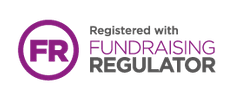Shutting Down – Max's Experience
Autistic people may experience lights, smells, and sounds differently to non-autistic people. Those with hypersensitivities can feel these sensations with a greater intensity, and this can lead to a ‘shutdown’.
When there’s too much sensory input in the environment, the brain can become overwhelmed by the influx of information and begin to panic.
Max said: “We shut down from sensory overstimulation over a prolonged period of time.”
After transitioning from night shifts to day shifts in his supermarket role, Max found himself struggling with the busy, high intensity environment and eventually ‘shutting down’. He ended up in the locker room, curled up in a fetal position and unable to move because he was too burnt out.
He continued: “It’s important to really pay attention to the sensory overstimulation that autistic people experience because we function differently in terms of how we process sensory information.”
Individuals with sensory sensitivities have challenges with filtering out the sensory information that surrounds them. This can result in overstimulation, where all of the senses become overwhelmed by the environment, causing a great deal of distress.
He added: “When I’m standing in a room and there’s points of sound coming from different directions, if the sound is surrounding me, then I get overstimulated.”
In an effort to cope with the overstimulation, the individual might ‘shut down’. They withdraw from the world around them, becoming unresponsive and still to shield them from any further distress. Although the experience varies from person to person, the emotional toll of a ‘shutdown’ can be substantial.
Max said: “What I experience when I go through a shutdown is akin to something like tunnel vision…So, everything around you goes a bit darker and light intensity is increased.”
“That overstimulation increases your heart rate, makes you feel like you’re having some sort of heart palpitation and you end up needing to stay in a corner somewhere where there’s less light or reduced light.”
He needs to escape the intensity of the stimuli to prevent further overwhelm. By moving to a place where there are reduced lights, smells, and sounds, he can regain a sense of control and begin to recover.
“It’s like magic to us autistic people, when we see non-autistic people going around doing tasks sometimes, because it’s like, how do you just do that? So the best thing to do is take them away from all possible sensory triggers, I hate using that word.”
When the triggers are known, you can try to limit your exposure to the sensory inputs, or use tools like noise-cancelling headphones to minimise the impact and reduce the chances of a shutdown.
Everyone has different needs, and it’s important to show patience and empathy when someone reaches a crisis point. Recognise the challenges they are facing and respond with kindness. For some, this may include providing reassurance, whilst others prefer space and time alone to recuperate.






